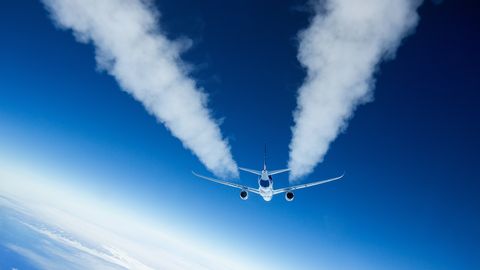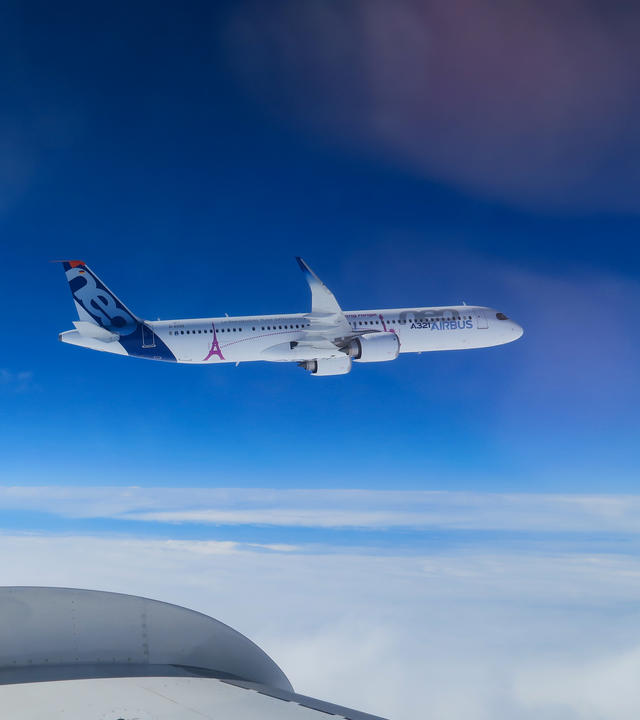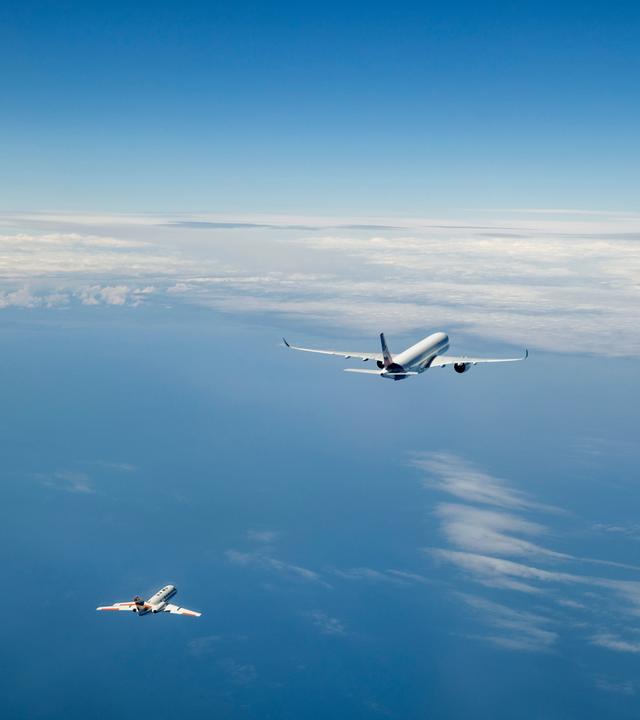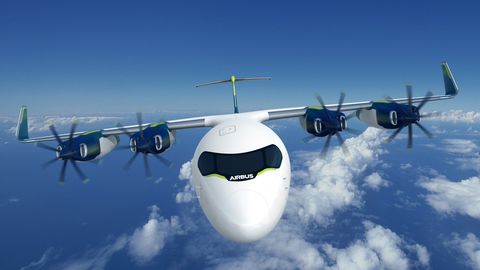Non-CO2 emissions
Reducing and mitigating non-CO2 climate effects of aviation

Developing operational solutions
STUDYING CLIMATE IMPACTS
The decarbonisation of the aviation industry is a key focus for Airbus, and mitigating non-CO2 emissions is a contributor to our decarbonisation ambitions.
Airbus is leading a variety of flagship projects to explore ways of reducing or mitigating the climate impacts of non-CO2 emissions. We are working with key industry partners, research institutions, universities and stakeholders from different sectors to better understand these emissions and develop operational solutions to mitigate them.
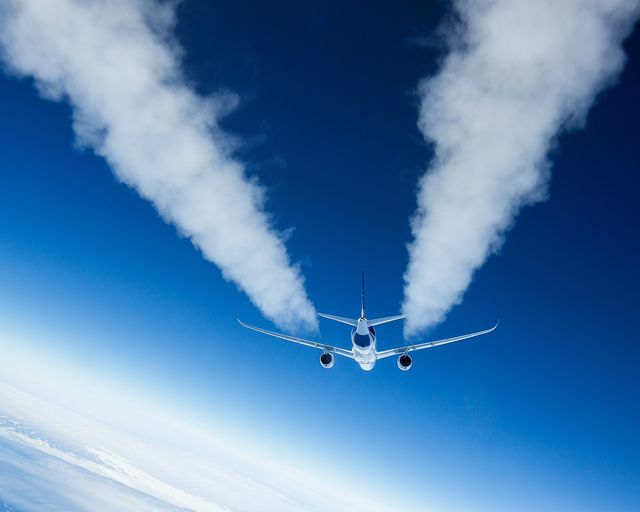

What are non-CO₂ emissions?
Burning jet fuel creates both carbon dioxide (CO2) and non-CO2 emissions. Non-CO2 emissions consist mostly of water vapour and soot.
At altitude, in certain conditions water vapour freezes around soot particles. This forms ice clouds known as condensation trails, or contrails - the white streaks behind aircraft in flight.
Calculating contrails’ climate effect is complex. It depends whether they are persistent, when and where they are formed and whether they have a cooling or warming effect: contrails both reflect incoming solar radiation and trap outgoing heat.


How is Airbus taking action to mitigate non-CO₂ emissions and contrails?
Airbus is working with research scientists, policymakers and the aviation industry to better understand and reduce non-CO₂ impacts. This includes:
- Research & flight trials: Studying contrails and testing fuel alternatives to reduce their impact.
- Contrail avoidance: Exploring new flight paths that minimise persistent contrails.
- New technologies: Investing in hydrogen-powered flight and innovative propulsion systems for a new generation of efficient aircraft.
Non-CO₂ emissions are an urgent but solvable challenge, and Airbus is leading the way in finding solutions.


CICONIA
Current projects
This Airbus-led project within the EU’s SESAR programme is assessing the impact that atmospheric conditions, aircraft characteristics and fuel have on non-CO₂ emissions. This includes how contrails could be mitigated through adapted flight operations to reduce aircraft-induced climate impacts.


Blue Condor
This demonstrator flies a modified glider to 33,000 feet – an extreme altitude for an aircraft that normally cruises below 10,000 feet – to analyse the impact of hydrogen combustion on contrail properties. The result of this analysis will provide critical information on aviation’s non-CO₂ emissions, including contrails and nitrogen oxides (NOx).


PACIFIC
The PACIFIC consortium brings together 11 partners from four countries to investigate the impact of fuel composition and engine cycle on particle emissions at different scales.
PACIFIC seeks to bridge the gap in understanding aviation’s non-CO₂ emissions by testing an unprecedented range of fuels under controlled conditions. PACIFIC will ensure consistency in combustion parameters and hardware similarity from lab-scale experiments to full aircraft engine tests. The multiyear project launched in January 2025.
The latest in non-CO2 emissions
In the spotlight
-

Non-CO2 emissions and contrails, explained
Web Story
Innovation
Airbus wants to better understand contrails. These are real, and not to be confused with chemtrails, which are not. Chemtrails are a conspiracy theory. -

Aerospace Technology Leaders Call for Expanding Research on Non-CO2 Emissions
Press Release
Sustainability
-

World’s first in-flight study of commercial aircraft using 100% sustainable aviation…
Press Release
Sustainability
-

Airbus’ most popular aircraft takes to the skies with 100% sustainable aviation fuel
Web Story
Sustainability
-

Airbus to take up the hydrogen contrail characterisation challenge
Press Release
Innovation

